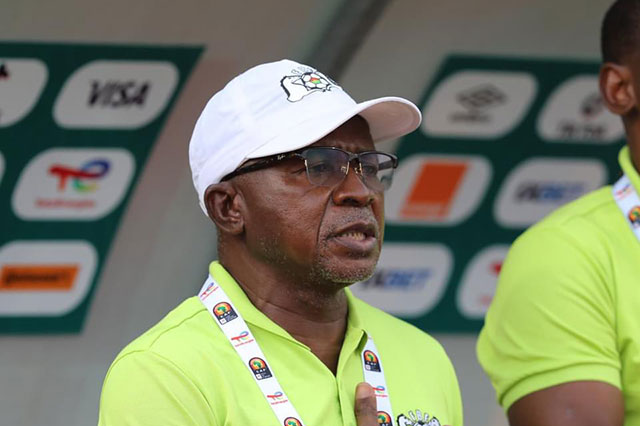Yaoundé – Kamou Malo’s Burkina Faso face Senegal in the Africa Cup of Nations semi-finals on Wednesday with a young team that has brought cheer to a country in turmoil under a local coach who has undertaken a remarkable rebuilding job.
Malo dedicated the Stallions’ quarter-final victory over Tunisia “to our people who are being tested by current events” after a military coup in the country which is battling a jihadist insurgency.
Burkina Faso was suspended from the African Union on Monday and it cannot be easy for their players to remain completely focused on the objective of upsetting Senegal and progressing to the final.
In the circumstances, having Malo, 59, at the helm may be especially precious right now.
Burkina Faso have reached the Cup of Nations final before, losing to Nigeria in 2013.
Then they were coached by the Belgian Paul Put, while when the Stallions finished third in 2017, the man in charge was Portugal’s Paulo Duarte.
It is common for African national teams to be led by a European, and two of the other three semi-finalists in Cameroon have a Portuguese coach – Carlos Queiroz and Toni Conceicao are in charge of Egypt and the hosts respectively, while Aliou Cisse is the Senegal boss.
In Burkina Faso, Duarte’s failure to lead the team to the 2019 AFCON persuaded the federation to change direction.
Retired policeman
“We wanted to build something new,” Colonel Sita Sangare, the former federation president, told AFP.
“We needed someone who could come in and really shake things up.”
Malo, who calls himself “a born leader”, is different to many of his peers in more ways than one.
He is a retired police officer for a start, and there is no doubting his authority – he included his son Patrick in the Cup of Nations squad but he has not featured since starting in the opening defeat by Cameroon.
Malo senior was brought up playing football on the streets of the capital, Ouagadougou, but he trained for the police force and was about to sit his exams to become a police captain when he got the chance to go to Germany and study for his coaching badges.
He enjoyed success coaching domestically, including winning the title at Rail Club du Kadiogo, before getting the chance to manage the national team in 2019.
“I was asked to rebuild but also lead the team to qualification. It was not an easy task for the novice and layman that I was then,” he told AFP.
Burkina Faso topped their qualifying group without losing and went unbeaten through qualifying for the World Cup despite having to play home games in Morocco.
They held Algeria twice, but just missed out to them for first place in the group and so will not be in Qatar.
Local expertise
Among the players Malo has brought through is Dango Ouattara, the winger who scored the winner against Tunisia but was later sent off, meaning he will not face Senegal.
Stephen Keshi is the only coach from Sub-Saharan Africa to have won the AFCON this millennium, but Malo is no doubt having the local knowledge is “an asset”.
“I would encourage those running federations in Africa to recruit local coaches. It was a risk but the results speak for themselves,” he said.
“We should have more confidence in ourselves and give local coaches the same opportunities.
“I prefer to see expertise passed on rather than just having people come and work here.
“As long as they see results people in Africa will applaud, but in 2019 when we didn’t qualify people asked why we had to bring in foreign expertise at great cost.
“Why not show faith in local knowledge? And let’s not hide the fact that we don’t cost a lot. We know what our people expect from us. People in Burkina Faso love football.”
Follow African Insider on Facebook, Twitter and Instagram
Picture: Twitter/@MickyJnr_
Source: AFP
For more African news, visit Africaninsider.com


